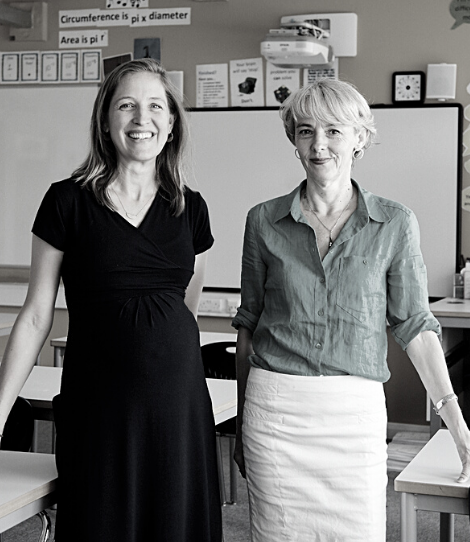It’s no surprise but our work relationship changes as we age. In our twenties and early thirties we may have loved our jobs, piled all our energy and mental resource into them, but then found once we had kids/cared for our parents/aged, our perspective shifted. I’ve learned after redundancy that saying no at work is a superpower that can change your attitude.
Work mattered more but also mattered less
With age comes a couple of things — a sense that you need to have more synergy between what you love doing and your job, that you feel more confidence, but at the same time insecurities arise around how relevant you are because work culture is changing at such a rapid pace.
- The new rules of job interviews
- Find the right job for you on our Jobs Board
- Get more advice in our Redundancy section
I come from a world of massive fax machines. Emails that took a couple of days to be replied to. A phone the size of a toaster. Work drinks that got out of hand. A male colleague we avoided on nights out and called ‘the octopus.’ Smoking. I’ve seen work speed up, and how important it is to set boundaries. I’ve witnessed severe burn out. Nervous breakdowns. Some things have changed for the better, but work has permeated more of our life and it can feel more difficult to drown out the noise.
The disillusionment we feel
Whilst researching my book, I’ve spoken to many women in their forties and fifties who feel disillusioned. Women who had work success and had children and found they’d fallen out of love with their jobs and couldn’t make it work (affordable childcare is a massive issue). Or women who stayed at home to bring up children and now they’re teenagers, feel out of the loop.
‘I don’t know what I’m good at,’ is a common refrain.
Or ‘Everything’s changed and nobody wants to hire me.’
There are also women who are stuck in jobs they hate and this is impacting on their mental and physical health. They are stagnating because they are unsure of their next move. This was me for quite some time.
Then of course there are millennials who are seen (not accurately) to have it sussed work wise – and for older women there can be feelings of competition and envy when they see these young, fresh, hot things rising up the ranks.
‘Why can’t I have some of that chutzpah?’ they say, ‘Why can’t I articulate what I really want?’
I grew up as a capitalist
I spent 17 years working in a corporate environment (in qualitative market research) and I firmly believed that working long hours, travelling all over the world, and earning lots of dosh, was the secret to a happy work life. This was the narrative I’d been sold. As a Gen X woman I’d grown up in the Eighties when capitalism and consumerism was taking off (my feelings about work shaped around films like Working Girl and 9 to 5).
I rejected my left-wing liberal upbringing and got down with the capitalist vibe. I had the feeling that I wasn’t doing the planet any good (because I was selling loads of crap to people that didn’t need it and flying all over the place) but I shrugged it off. I also shrugged off the anxiety, headaches, the fact that I cried every Sunday night at the thought of the work coming my way, the panic attacks and the fact that every fibre in my body was telling me my life wasn’t working.
I spent a lot of time in hotels on my own eating peanuts and watching infomercials for tummy exercisers. Or crying on planes.
Redundancy threw me into a new world for me
When I took voluntary redundancy, four years ago, I was thrown into a new world. I was half terrified and half thrilled – in fact I think this is a normal state for many working women in their forties. It was all short-term contracts, and quick turnaround, and boasting about your lunch (usually healthy, usually with kimchi) and being continually enthusiastic. I was fortunate in that I – initially- had some money so wasn’t under too much pressure (I got a good redundancy package) but when that ran out I was scrambling to understand what work meant.
What did I want now? What was I good at? Was I in fact good at anything? I had to earn money — that much was clear. I had 2 kids and a mortgage, but I’d also started writing and blogging and was enjoying this side to my life.
In more recent years I’ve worked at agencies on short-term contracts. I’ve freelanced as a journalist and social media consultant. I’ve made podcasts. I’ve written four books — even typing this I cringe because I come from a backdrop where women don’t brag about their achievements, instead they are expected to keep their heads down and get on with it.
Saying no to my old work ways
I spent most of my career bigging up others, and deflecting attention away from myself — this is something I’m working on. I’ve swerved this way and that. It’s been thrilling and terrifying. I am now in a part-time role that I love. I feel confident because my employer respects me as someone who brings good things to the table. They are encouraging and don’t amplify my lacks. These things are important, as is flexibility. I am lucky as many older women haven’t found that yet.
So here are the tips I’ve learnt on how we can navigate work life as we age:
1. Listen to the constructive voice and ignore the unhelpful one
If we think back to the weird paradox that is being an older working woman, there is often a sense of quiet confidence, the confidence that only comes with experience, combined with moments of deep-rooted anxiety. It can feel at times like you have two heads. A head that is saying things like ‘You’ve got this’ and is visualising Melanie Griffiths in a power-suit with massive hair, and another one that is saying unhelpful stuff like – ‘You’re ancient. You’re old news.’ On a very simple level you need to drown out the unhelpful one. There are lots of ways to do this but exercise, 90s music and short meditation sessions are my go-to tools.
2. Rewrite your work persona
Looking back, I realise that part of the reason I hated my old job was because I was doing the same thing each day. I was the person that listened to others. The one who ran into the toilet to calm them down because they’d burst into tears. The one who massaged egos. Who gave others credit. Now I’m re-writing my work persona. That’s not to say I’m rude or unhelpful now, but I don’t exist purely to help others. This has been a big learning for me. I want to take up space. I want to contribute. I am way less obsessed with people liking me.
3. Keep learning new skills
I am someone who has always seen themselves as rubbish at certain things. I can’t do technology. I’m not good at numbers. I’ve recently learnt that these are fixed opinions, based on being told by a specific Maths teacher at school that I wasn’t good at sums. The acknowledgment that you can grow and learn is an important one- it opens possibilities and makes you feel more optimistic. If you can’t do something then find someone who can to show you how.
4. Get yourself a younger mentor
I used to feel so tired when I sat next to younger colleagues – especially those who didn’t have children. I visualised their lives full of socialising and lazy lie-ins and being super creative and spontaneous. Truth is youth brings its own challenges, but there is much we can learn. I have always been a staunch believer in being mentored by someone younger. I learn and they learn – though they may get irritated by my tech-related emails and crap use of emojis on Slack.
Work matters more and it matters less
This is the power of ageing. Identify what matters and what doesn’t. Set boundaries. As I’ve combined motherhood and work I’ve learnt to be productive in short bursts of time. I refuse to be tied to my desk once I’ve finished. But we will get more tired. And at times more overwhelmed. We will also get hormonal and have to lie down.
Saying no is a super power that should not be underestimated.
Anniki Sommerville
Anniki Sommerville is the author of How To Be A Boss at Ageing: Real Advice on how to Navigate and Embrace Midlife.
purpose
View All
Lessons from Now Teach about your second career
Teaching is a rewarding second career. The co-founder of Now Teach shares insights about switching tracks

4 steps to making real change in your life
You have the courage to change your life in long-lasting ways. Here’s how to start.

Picture: Getty Images
Find your purpose Part 1: Be the woman you want to be
Are you where you want to be in life? Sheila V tells how to find a courageous new path

Make the best use of your talents, career reboot or pivot
Midlife is the ideal time to make a career change. You do that by exploiting your talents, not changing them.


